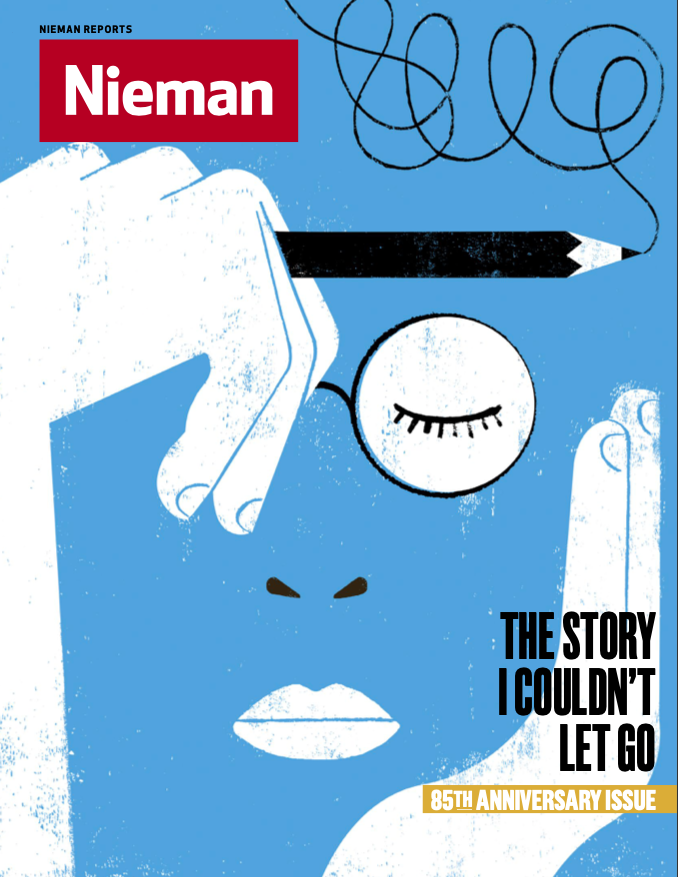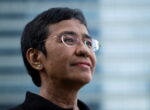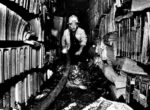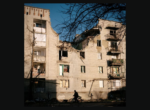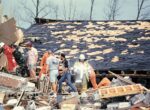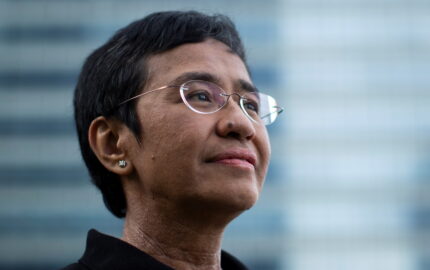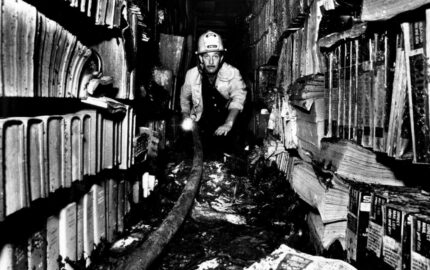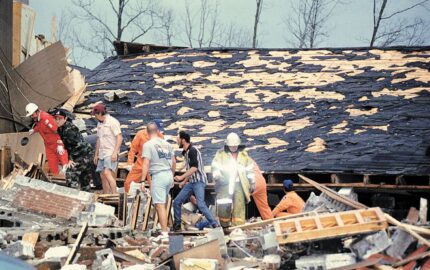There are things that you think would never happen to you, like an airplane crash — or a war. As a child, every time the TV was on, I heard the words Bosnia and Herzegovina. These two words stuck with me because they sounded strange and unlike anything I knew. But mostly in these moments I was upset, because when the news was on, this meant I could not use TV to play video games. When I was in middle school, our history teacher started crying because of the war in Iraq. “Nobody will do anything, the UN is useless,” she said. We, the students, were rolling our eyes and giggling. We thought it was nuts. Why would anyone cry because of something that existed merely on TV?
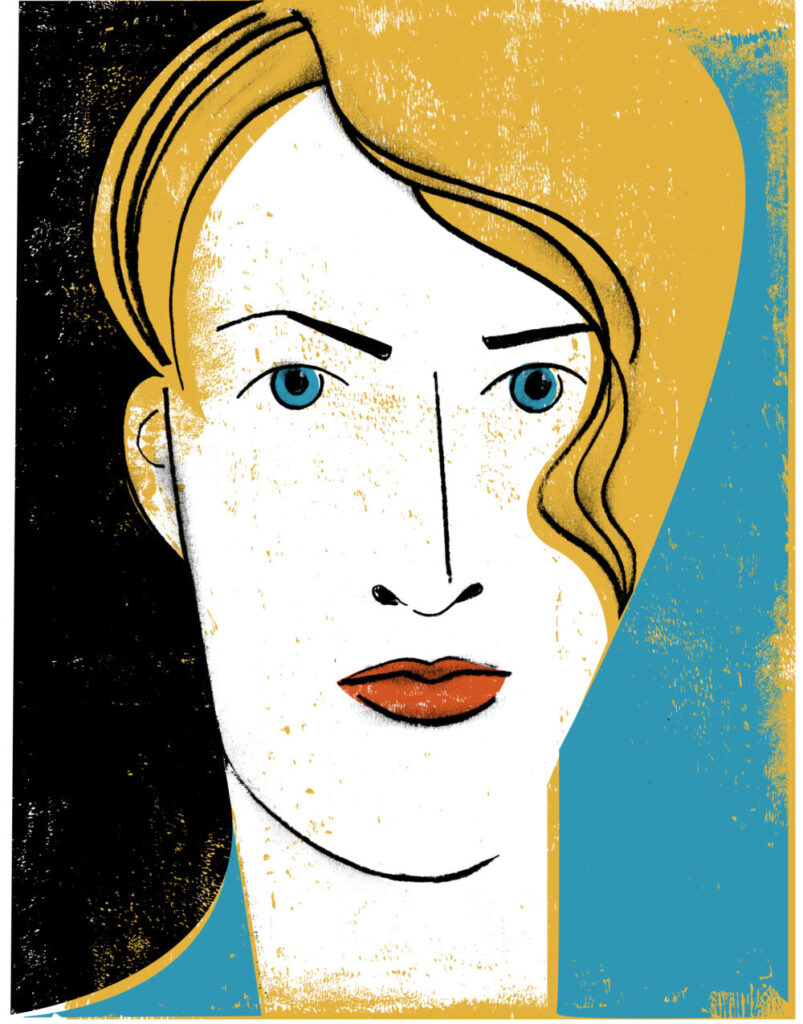
Not that my childhood was fancy and privileged, quite the contrary. I am from Donetsk, Ukraine. When I was three years old, the Soviet Union collapsed. It was a hard time. There were food shortages, the playgrounds were rusty and falling apart, and the trolleybus to Grandma's might or might not show up. The highlight of my preschool years was accompanying my mom as she sold Tampax tampons brought from Poland at the market. If we had good sales, she would buy me a banana — a luxury, like Tampax itself. Our women were just discovering that stuffing rags in their panties was not the only option out there.
But it was getting better. By the time I graduated from college and started my career as a reporter at a local newspaper, my life was not so different from a typical Western middle-class life. In the spring of 2014, I was really into my new yoga studio. I was even considering going on a retreat and was trying to choose between that and a vacation in Barcelona. I got a slight raise in salary and decided now I could afford to get waxed every couple of weeks.
Well, that’s what I thought was going on. In Russian propaganda, this spring was called the Russian Spring. This was when the invasion of Ukraine first started — when the Kremlin incited and backed separatist insurgency in Donetsk. It got pretty bad pretty soon. And something that most profoundly shocked me about the experience of war, more than having my house bombed, more than seeing people die, was how the world suddenly distanced itself from me.
There was a series of events that made it clear.
The first was the airplane load of blankets.
The real-real war hadn’t even started yet. There were just some street riots and rumors of Russian involvement, some strange activity that most people didn’t even pay attention to, believing it would go away. And then one day my paper is sending a reporter to the airport to cover the arrival of a cargo airplane filled with blankets sent by the UN. I remember asking, “An airplane of … what?” I could not comprehend the idea that someone out there, in some office in Brussels or New York, had already categorized me, with my life and my plans and my everything, as a charity case soon to be reduced to such misery that I would need a humanitarian blanket. I wanted to scream, “I don’t need your blanket! I am not THAT!”
But, those people knew better than I did. The situation was getting only worse. After a couple of weeks, my city was pretty much controlled by the Russia-backed separatists. Do you know how a city is taken over? Every day a bus or two parked near one center of power — a police department, court, municipal offices, or a treasury building. A group of armed people unload and enter the building. Confronted by nobody but a bunch of scared-to-death office workers, they change the flag at the entrance, find the chief of the office, put a gun to his head, and demand cooperation. Some cooperated, some fled, few openly resisted, and nobody saw them again — except the one who was later found in the river with his stomach cut open.
I could not comprehend the idea that someone out there, in some office in Brussels or New York, had already categorized me, with my life and my plans and my everything, as a charity case soon to be reduced to such misery that I would need a humanitarian blanket.
One day, the bus parked by our newsroom, right next to my little red car. It was a yellow school bus stolen from the Department of Education. The armed men came in. You cannot take over a city without shutting down independent media. Our editor-in-chief refused to cooperate and fled the city. Overnight, our newspaper ceased to exist, and I became unemployed. The next day I was hired as a fixer by the Western media.
I kind of liked being a fixer. It was a lot of adventures, and good money. But there was something weird about my position vis-à-vis my employers. On the one hand, I was included in the global media scene. On the other, I was constantly reminded of the gap between myself and them that seemed unbridgeable.
If dead people could listen to those who were alive, this is how I was listening to that conversation. Those days, I was constantly in a state of shock and bewilderment. My whole world was falling apart in front of me. And here were people talking about massages, restaurants, and weddings. Because, you know, there is always some suffering out there in the world, you cannot help it all. Except, this time, the one suffering out there in the world was me.
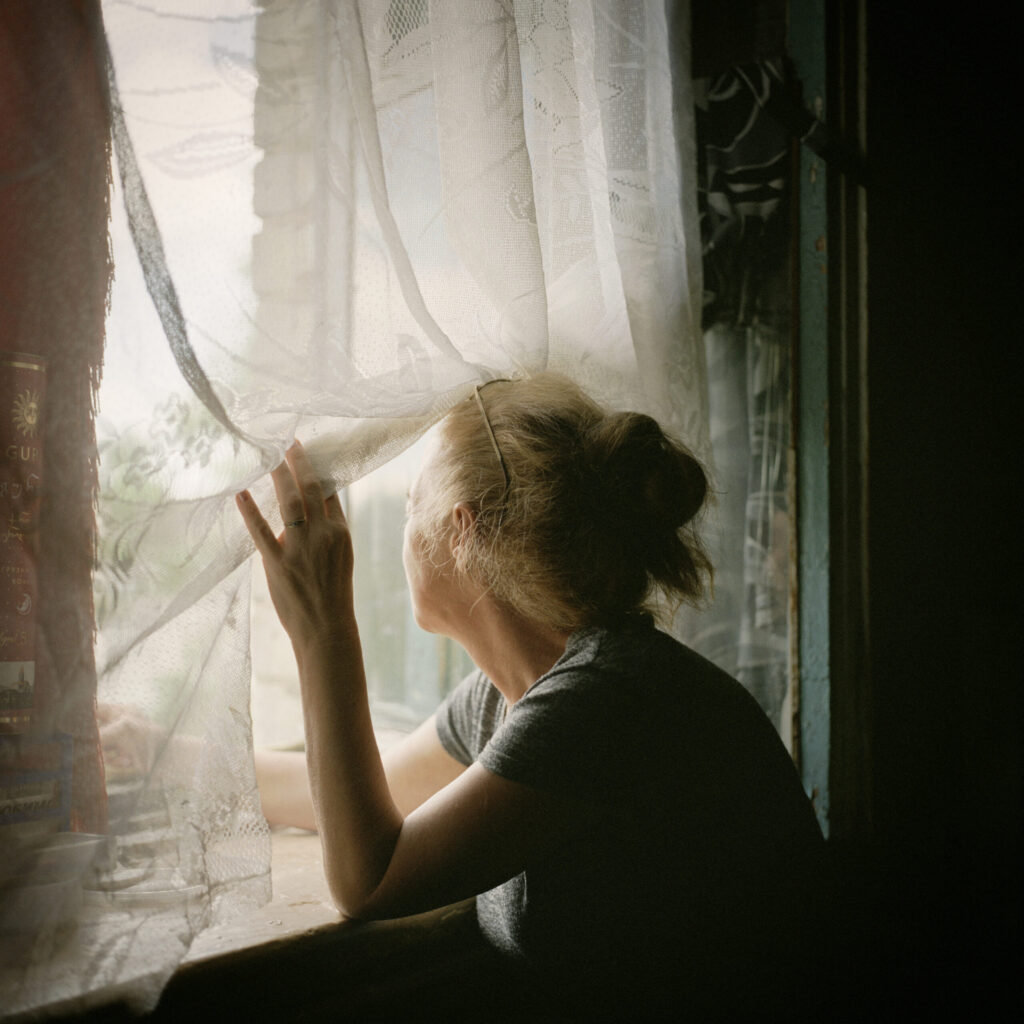
I remember one day driving home after a day of working at the frontline with two American photojournalists. They were chatting leisurely in the back seat. One said that he was going to get a massage once he was back in the hotel. “They have a really good massage, you should try it while we are on assignment and it’s covered.” The other said he was already tired of this assignment and looking forward to going back. “I’m gonna stop in Kyiv for a few days, meet some friends, there are some really good restaurants to check out.” The first one said he would love to stop in Kyiv, too, but needed to return for a wedding back home.
Even inside my own country, I was constantly experiencing this otherness. After a few months of covering my city falling into the abyss of the war, I felt I needed a break and went to visit friends in Kyiv. The next day after arrival, I went to a nearby supermarket. At the entrance, I was stopped by a volunteer collecting humanitarian aid. She said, “You can buy some groceries and leave them in this box for the refugees from the East.” “I am a refugee from the East,” I replied. The volunteer looked at me with this “system error” face. Obviously, I could not be a refugee because I looked just normal and was freely inhabiting public space. I was not covered in mud, wrapped in the UN blanket, or, even better, secluded in some camp away from everyone’s eyes, the ways refugees exist in the public imagination.
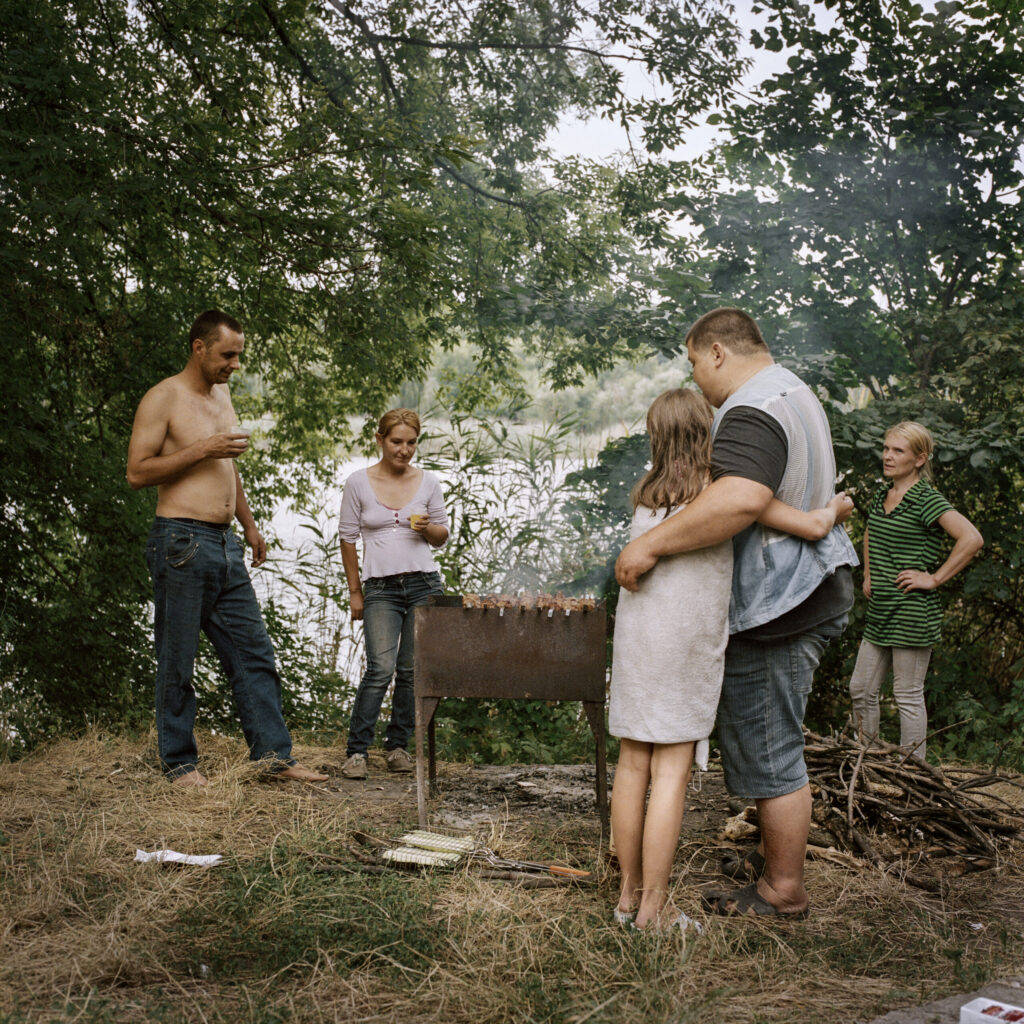
Then I met Anastasia. She stood out because she didn’t just want to go to the frontline and then back to her hotel. She was curious about the logistics of everyday life in war. She asked questions about my own life. “I can take you to my neighborhood,” I offered. The suburban neighborhood where I lived before the war was next to the Donetsk airport, and the airport was one of the main battlefields. Whatever life was left there was tense.
We took a walk towards my old house. I showed Anastasia my newspaper building, now shelled and abandoned. I showed her my favorite manicure salon, now empty and with a broken window. A 10-minute walk away from my house, we were stopped by soldiers. “You are not allowed to go any further.” “But I have a house there. I live there,” I tried to argue, just to make a point. “You are not allowed to go any further,” the soldier repeated, looking through me as if I was a non-entity, a bothersome fly on his way.
I was not surprised or upset. I had adapted to living in a world where whoever had a weapon had absolute authority. But Anastasia was stunned. She was shaken by the idea of being prohibited from accessing your own home by a random guy who was not from there. I’d finally met a Western journalist who was eager to relate to me as an equal and to treat my experiences as if they could be her own. That day laid the ground for our friendship and our creative collaboration.
Over the next several years we created together a project that we titled “5km from the Frontline.” Its goal was to overcome this otherness and show what everyday life in the war really looks like. Anastasia takes photographs, and I write short stories about them. These are images of people, places, things, and life situations in the immediate vicinity of the frontline taken over the past five years.
Prior to the full-scale Russian invasion, the war in Ukraine was largely absent from the global media scene. In order to make the suffering of peope in eastern Ukraine more visible, we self-funded our many reporting trips to Donbas. Eventually our work was picked up by outlets like Time magazine, The New York Times, and NPR.
Following the full-scale invasion, we have continued this work. As before, we seek to represent daily civilian life in Donbas — an aspect of the war that, despite the heightened attention on Ukraine, remains overshadowed by events deemed more newsworthy.

